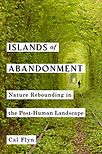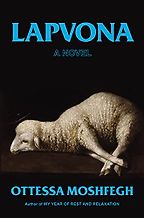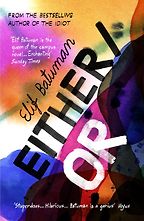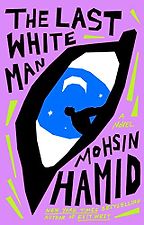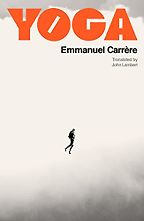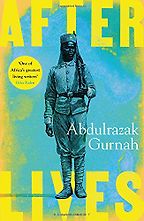What novels have we got to look forward to in summer 2022?
After a very strong start to the year, fiction-wise—see my round-up of the most notable novels of early 2022—I imagine your to-be-read pile is already tottering. But there’s plenty still to come. Look out for these promising novels scheduled to be released in summer 2022, including new books from big hitters like Elif Batuman, Ottessa Moshfegh, Mohsin Hamid and Abdulrazak Gurnah.
I can’t wait. So what are the books that everyone is already talking about?
There’s been a lot of buzz around Lapvona, the new novel from Ottessa Moshfegh. Set in a medieval fiefdom racked by plague, drought and famine, Lapvona features a wide cast of villagers struggling to survive in the face of corruption, cruelty and the occult. Although different in subject matter to her greatest hits—the why-dunnit noir Eileen and the comfortably numb tale of self-isolation My Year of Rest and Relaxation—Lapvona shares their macabre interest in the grotesque and the darker sides of human nature. (Out June 23.)
If that sounds good to you, you may also be interested in Julia May Jonas’s debut Vladimir, the story of an English professor whose husband is facing a slew of accusations of sexual harassment, who herself goes on to develop an obsession with a much younger colleague. It’s provocative and darkly entertaining. Acts of Service by Lillian Fishman, a novel of sexual exploration and exhibitionism, has also been hotly anticipated. It has garnered endorsements from the likes of Sheila Heti (who called it “radical, daring and bracing”) and Raven Leilani (“thoughtful, savage”).
Keep an eye out for Elif Batuman’s latest novel, Either/Or, too. It picks up where her previous novel, The Idiot, left off— following Harvard linguistics student Selin through a smart, witty, literary romp through her sophomore year. As the title suggests, Selin is much taken up with questions of how to live—specifically, whether ethics should trump aesthetics—but unlike Søren Kierkegaard (I assume), she is even more concerned with parties, her college syllabus and whether or not she’s going to get laid.
The film director Werner Herzog has made a first foray into fiction with his novel The Twilight World, about a Japanese soldier who defended a small island for nearly three decades after the end of World War II, unaware that the war was over. The publisher describes his style as “part documentary, part poem, and part dream”, a quality that will be immediately recognisable to fans of his films.
What other new novels should I have on my radar in the coming months?
Mohsin Hamid (The Reluctant Fundamentalist, Exit West) returns with The Last White Man, a work of speculative fiction in which people wake up, unexpectedly, with different skin tones. Kirkus described it as “a brilliantly realized allegory of racial transformation.” (Out August 2.)
I’m also intrigued by Louisa Reid’s novel-in-verse The Poet (out now in the UK, available as ebook or audiobook in the US), a story of a dysfunctional relationship that should appeal to fans of Megan Nolan’s Acts of Desperation. Plus there’s Nell Zink’s latest, Avalon, a coming-of-age story featuring a Californian plant nursery, biker gangs and a pretentious college student boyfriend.
Any personal highlights from the summer 2022 crop of novels?
The book I’ve been raving about recently to anyone willing to listen is the French writer Emmanuel Carrère’s new (and somewhat controversial) work of autofiction, Yoga. Autofiction is a slippery term—it usually refers to a novel that draws heavily on the author’s own life, but with a veil of doubt drawn over the narrative—and this case is one of the slipperiest of all. In it, we follow the author through a major life crisis as he suffers a mental collapse, spends time in a psychiatric institution, volunteers in a refugee camp, and (off-screen) experiences the break-up of his decade-long marriage.
Carrère is, as Robert McCrum once described him, “the most important French writer you’ve never heard of.” We, in the Anglophone world, have not paid him his dues. This latest work is a difficult book to sum up, but suffice to say, it begins in an easy, breezy style that feels almost free-associative, before it swirls ever faster down the plug hole. Disparate, discordant elements come into alignment, and soon Yoga reveals itself to have been entirely orchestrated from beginning to end. By the closing pages I wanted to give it a standing ovation. You’ll either love it or hate it; clearly, I’m in the former camp. (Yoga is out June 2 in the UK, August 2 in the US.)
Also of note in translated fiction, the latest novel from Omani author Johka Alharthi: Bitter Orange Tree. Like Alharthi’s International Booker Prize-winning Celestial Bodies, Bitter Orange Tree has also been translated by the Oxford academic Marilyn Booth. And look out for Sayaka Murata’s collection of short fiction, Life Ceremony.
What summer 2022 novels will make good beach reads?
There’s a steamy new novel from Nigerian author Akwaeke Emezi (best known for Freshwater andThe Death of Vivek Oji). Their new book, You Made a Fool of Death with Your Beauty, is the moving story of a Brooklyn-based artist who—five years on from the death of her husband—is ready to consider dating again. Vogue called it “this summer’s must-read love story,” although be warned, it’s darker than your average romance novel. Other books you might want to slip into your suitcase for an upcoming beach holiday include Taylor Jenkins Reid’s latest, Carrie Soto Is Back (out August 30), and Bolu Babalola’s debut romcom Honey & Spice (July 5).
R. F. Kuang (author of the Hugo-, Nebula-, Locus-, and World Fantasy Award-nominated The Poppy War trilogy) returns with a new fantasy epic: Babel, or The Necessity of Violence: An Arcane History of the Oxford Translators’ Revolution, which should appeal to fans of Jonathan Strange & Mr. Norrell. And thriller lovers should look out for Upgrade by Blake Crouch, a follow-up to his mind-bending Recursion.
Is that everything?
Not quite. While I still have your attention, I also want to flag up a new book from Abdulrazak Gurnah—who won the 2021 Nobel Prize for his “uncompromising and compassionate penetration of the effects of colonialism.” His latest novel, Afterlives, is set in what is now Tanzania (then Tanganyika) during the period of German rule around the turn of the 20th century, following a large cast of characters facing oppression of various kinds during the run-up to the First World War. As Maaza Mengiste has written, “Gurnah is known for decentring European history: a structural decision that is also politically potent.” In Afterlives, Gurnah considers the intergenerational consequences of violence, and asks us to consider colonialism from the African perspective.
Part of our best books of 2022 series.
What books are you most looking forward to this summer? Let us know. Send us a tweet, or post on our Facebook page.
May 30, 2022. Updated: January 16, 2025
Five Books aims to keep its book recommendations and interviews up to date. If you are the interviewee and would like to update your choice of books (or even just what you say about them) please email us at [email protected]
Five Books interviews are expensive to produce. If you've enjoyed this interview, please support us by donating a small amount.

